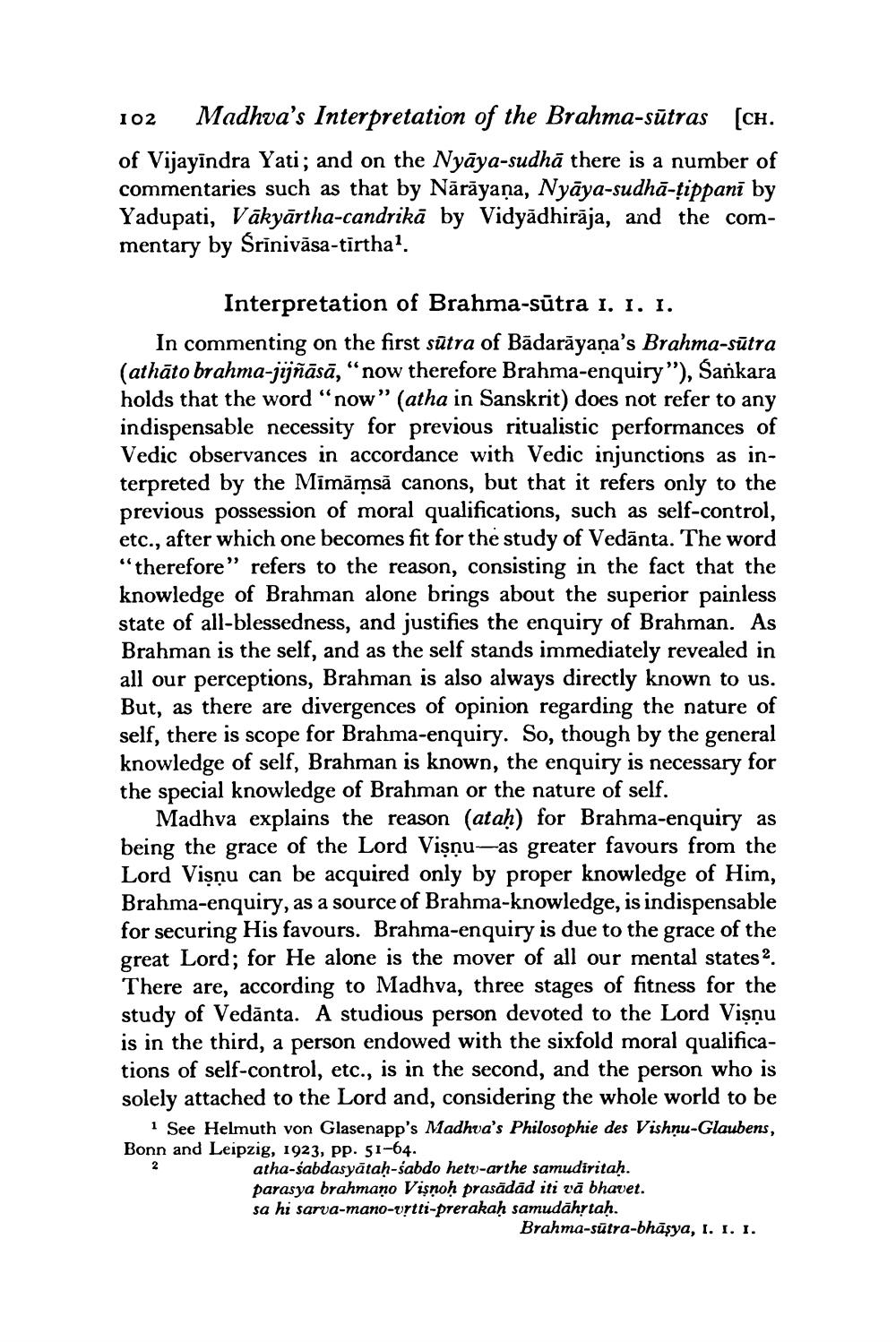________________
102 Madhva's Interpretation of the Brahma-sūtras (CH. of Vijayīndra Yati; and on the Nyāya-sudhā there is a number of commentaries such as that by Nārāyaṇa, Nyāya-sudhā-tippani by Yadupati, Vākyārtha-candrikā by Vidyādhirāja, and the commentary by Srinivāsa-tirtha?.
Interpretation of Brahma-sūtra 1. 1. I. In commenting on the first sūtra of Bādarāyana's Brahma-sūtra (athāto brahma-jijñāsā, “now therefore Brahma-enquiry"), Sankara holds that the word "now" (atha in Sanskrit) does not refer to any indispensable necessity for previous ritualistic performances of Vedic observances in accordance with Vedic injunctions as interpreted by the Mimāmsă canons, but that it refers only to the previous possession of moral qualifications, such as self-control, etc., after which one becomes fit for the study of Vedānta. The word “therefore” refers to the reason, consisting in the fact that the knowledge of Brahman alone brings about the superior painless state of all-blessedness, and justifies the enquiry of Brahman. As Brahman is the self, and as the self stands immediately revealed in all our perceptions, Brahman is also always directly known to us. But, as there are divergences of opinion regarding the nature of self, there is scope for Brahma-enquiry. So, though by the general knowledge of self, Brahman is known, the enquiry is necessary for the special knowledge of Brahman or the nature of self.
Madhva explains the reason (ataḥ) for Brahma-enquiry as being the grace of the Lord Vişņu—as greater favours from the Lord Visņu can be acquired only by proper knowledge of Him, Brahma-enquiry, as a source of Brahma-knowledge, is indispensable for securing His favours. Brahma-enquiry is due to the grace of the great Lord; for He alone is the mover of all our mental states ?. There are, according to Madhva, three stages of fitness for the study of Vedānta. A studious person devoted to the Lord Vişnu is in the third, a person endowed with the sixfold moral qualifications of self-control, etc., is in the second, and the person who is solely attached to the Lord and, considering the whole world to be
1 See Helmuth von Glasenapp's Madhva's Philosophie des Vishnu-Glaubens, Bonn and Leipzig, 1923, pp. 51-64.
atha-sabdasyātaḥ-sabdo hetv-arthe samudiritaḥ. parasya brahmano Vişnoh prasādād iti vā bhavet. sa hi sarva-mano-Urtti-prerakaḥ samudahytah.
Brahma-sūtra-bhāsya, I. 1. I.




